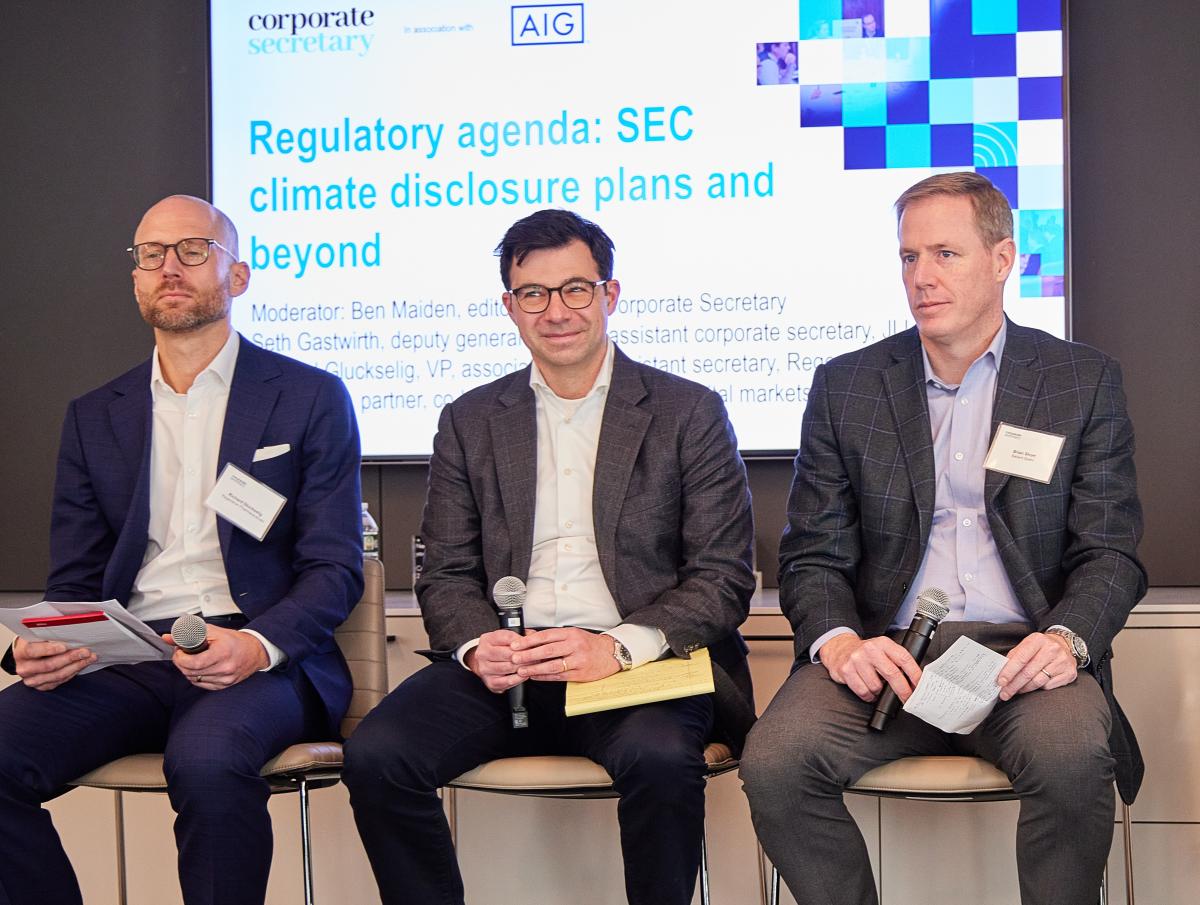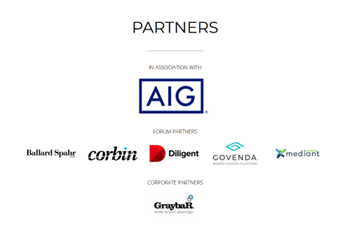The SEC’s landmark rulemaking on climate change has not yet been finalized but governance professionals say companies can and should be getting ready to comply.
The topic was among those discussed at the recent Corporate Secretary Forum in New York, where professionals gathered to share their insights on issues affecting the community going into 2023.
The SEC in March proposed rule changes that would require companies to disclose information about their governance of climate-related risks and how any climate-related risks have had or are likely to have a material impact on their business.
As proposed, the changes would also require companies to disclose information about their own greenhouse gas (GHG) emissions (Scope 1) and indirect emissions from buying electricity (Scope 2). Companies would have to disclose GHG emissions from upstream and downstream activities in their value chains (Scope 3) only if material or if the company has set a GHG emissions target or goal that includes Scope 3 emissions.
Brian Short, partner and co-leader of the securities and capital markets group with Ballard Spahr, during one of the forum’s sessions described the proposal as highly detailed and prescriptive – more so than attorneys may be used to – commenting that it would expand company disclosures exponentially. Although a vote on the final rule had been expected by the end of 2023, he noted that most observers don’t expect that to happen until 2023.
Some market participants also believe the US Supreme Court’s ruling limiting the US Environmental Protection Agency’s ability to curb GHG emissions signals potential legal difficulties for the SEC climate proposal.

GETTING READY NOW
Despite uncertainty over when that vote will take place, fellow panelist Seth Gastwirth, deputy general counsel and assistant corporate secretary with Jones Lang LaSalle (JLL), said: ‘There’s a lot boards can and should be doing now.’ A good starting point is for the board to assess what competencies it has and whether that includes having members with in-depth ESG-related expertise.
The next step is to make sure the board is up to speed on the SEC’s rule because there will not be a great deal of time to prepare once it is finalized, Gastwirth said. That includes educating the board at an early stage on matters such as the company’s existing policies and internal procedures and the quality and consistency of its relevant data.
JLL last year looked at its board committee charters and corporate governance guidelines and, given the increased importance of ESG, asked whether its board was structured effectively, Gastwirth said. As a result, it updated its nominating and governance committee’s charter to specifically include sustainability. The reporting commitments imposed under the SEC’s proposal will be overseen by the audit committee.
Asked what governance teams can be doing now in terms of the SEC proposal, Richard Gluckselig, vice president, associate general counsel and assistant secretary at Regeneron Pharmaceuticals, said: ‘It’s tough because we’re shooting at a moving target.’ He noted that it’s unclear what the final rule will look like – for example, whether it will include any requirements relating to Scope 3 emissions.

But in addition to the board-level steps Gastwirth outlined, Gluckselig advised governance teams to compare what their companies are already doing in terms of reporting and what the new rule would likely require. The emphasis is on data, Gluckselig noted, commenting that ESG-related data can be a little ‘squishy’. As a result, one option for teams is to look for better ways to collect climate data, such as by using a company-wide system. It might take some time to put a good process in place, particularly if Scope 3 emissions are to be included, Gluckselig added.
He also noted that the SEC proposal includes some qualitative disclosures on governance and oversight. Although these are not extensive, it would be helpful to start drafting them now, he said.
Gastwirth agreed that assessing the quality of data a company produces is essential, which has led JLL to create a reporting group including members of the legal, financial and ESG teams. Using the same resources and people when preparing disclosures helps ensure a company’s reporting is consistent, he added.










